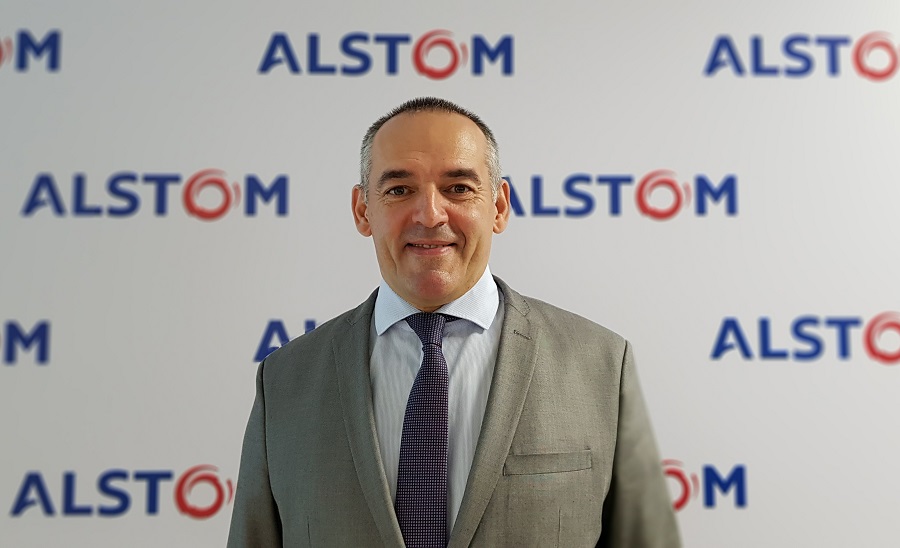Bernard Peille, the Managing Director for Western and Central Asia for the French transportation manufacturer Alstom, sat down with Caspian News in Astana last week to discuss how the transportation and shipping industries in the Caspian and Central Asia regions are developing.
Q: Your company has been active in Azerbaijan and Kazakhstan for a long time. What have you achieved over these years?
We achieved a lot. I think you can see today the effects of these contracts. We continue to deliver locomotives for Kazakhstan and we continue as well to develop our activity. What is the most important for me is that we continue to train staff here [in Kazakhstan] and in Azerbaijan – in Azerbaijan we are focused on further expansion of the team.
Q: What are the reasons these two countries are attractive for the company?
Well, there are several reasons, and the first one is that there is high demand, and these are two vast markets, and we know the needs of these markets. Meanwhile, our strategy is always the same – to be close to the customer and to make sure that the product we are selling is the product that is well-used, well-maintained and provides maximum efficiency.
Q: Azerbaijan ranks 18 out of 189 countries in the “Starting a Business” category within the World Bank’s 2018 Doing Business Report, as it takes an average of 4.5 days to start a business here. How comfortable is to do your business in Azerbaijan?
I have to say that we have not seen any major obstacles so far, the relationship with the customer is going well. Actually, we are contributing to the revitalization of the railway business in Azerbaijan, as we offer the country eminently qualified products at an affordable price.
Q: The deal between Azerbaijan Railways and Alstom was for 10 passenger and 40 freight cars. When is the full upgrade of the Azerbaijani railway fleet expected?
The delivery of all locomotives manufactured for Azerbaijan is expected to be completed by 2021, as this is a long-term cooperation with the Azerbaijan Railways. I also would like to add that the first AZ8A locomotive produced for Azerbaijan became part of the contract Alstom signed with the Azerbaijan Railways in 2014. And last October, our company presented the first passenger locomotive assembled for Azerbaijan.
Q: What are the main differences between the new locomotives and those currently used by Azerbaijan Railways?
Our locomotive has much more reliable technology, it is easier to operate, and it is environment-friendly. In addition, this model is the first to apply a fully automatic train tracking system, which minimizes the probability of driver error and also provides an optimal mode of maintenance and power consumption. The system of train auto-driving uses satellite navigation.
Q: Are there any specific requirements for rail transport manufactured for Azerbaijan and Kazakhstan?
The specific requirements are mainly to adapt to harsh weather conditions in Kazakhstan. Also, the freight cars should carry heavier convoys – and this is the same in Azerbaijan – as well as to have a reliable technology, which will suit local requirements.
Q: Alstom will provide Kazakhstan with 295 locomotives, including 200 freight cars and 95 passenger locomotives. What are the other projects currently being implemented in Kazakhstan by Alstom?
Along with locomotives, we manufacture point machines, and hope to start developing signaling systems.
Q: As we know, Kazakhstan is going to benefit from trade routes linking Europe and Asia through China’s transcontinental trade mega-project known as the Belt and Road Initiative (formerly called “One Belt, One Road”). How does your company see itself in this project?
What we see is that this is very active project, and also, you could see a new dry port in Khorgos has already started to operate. We also see that roads between China and Europe become shorter in terms of time consumption, and of course, the demand for us, our locomotives, is getting higher and higher, because if you deliver your goods faster and in a more reliable way – our locomotives are already a part of this huge project.






